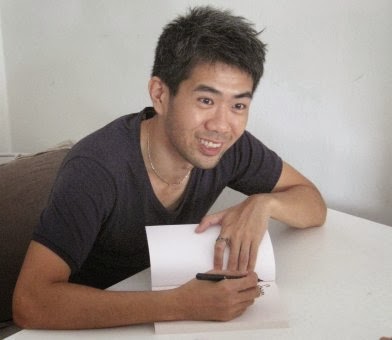"Japan is much smaller than the U.S. in terms of land area, but there are so many bookstores, and people can buy cheap but well-made books. So books don’t really have to be digital," Toru Sanpei, chief of the secretariat of the Japan Electronic Publishing Association.
How many bookstores does Japan have?
According to Publishers Weekly, the United States had 12,703 bookstores in 2012 while Aru Medial, a Tokyo-based research firm, says Japan had 14,696.
Alrighty, then.
Elsewhere:
- Before you quote Mark Twain, read this. Because there are some things that Twain did not say.
- Are these the eight most influential people in e-book publishing?
- Daniel Mendelsohn and Jennifer Szalai discuss the value of literary prizes.
- There are fifty shades of rejection, apparently, even though many rejection slips sport only one.
- A veteran New Yorker and Random House editor picks the most under-appreciated books he's edited.
- Somebody actually did a "textual analysis of The Hunger Games", comparing the adjectives, adverbs and sentences most commonly used by THG author Suzanne Collins, Stephenie Meyer and JK Rowling.
- Know them by these deeds: An evil writer's guide to messing with the editor. G*d help those I catch doing any of the above.
- Twelve mistakes the grammar police tend to make, with a bonus thirteenth 'mistake'. So, who edits the editors?
- Over 40 errors in Sir Alex Ferguson's memoir? Nothing new, it seems. Could it be worth big bucks in the future? Uh....
- Using an old law, Brazil's rich bans biographies - but not always for the right reasons. "Though defending the honor of loved ones is the official banner, the more powerful motive for calling in the book police is money," writes Mac Margolis in The Daily Beast. The ban has, apparently watered down bios so much in Brazil that one historian calls them "glorified press releases".
- Perhaps responding to the debate over the gamification of literature, the Writer Beware blog highlights some author reality shows that failed (or never took off) - and Simon Cowell was involved in one of them.
- The last copies of Fixi title Dendam ("Revenge") has sold out and will not be reprinted. RIP.
- Company tries to fine couple over negative review, then sinks their credit rating when they couldn't pay.
- Of these "100 greatest novels of all time", I only read less than five. Don't judge.
- This book says cereals will damage your brain. And we thought sugar was dangerous already.
Categories:
Book Marks








